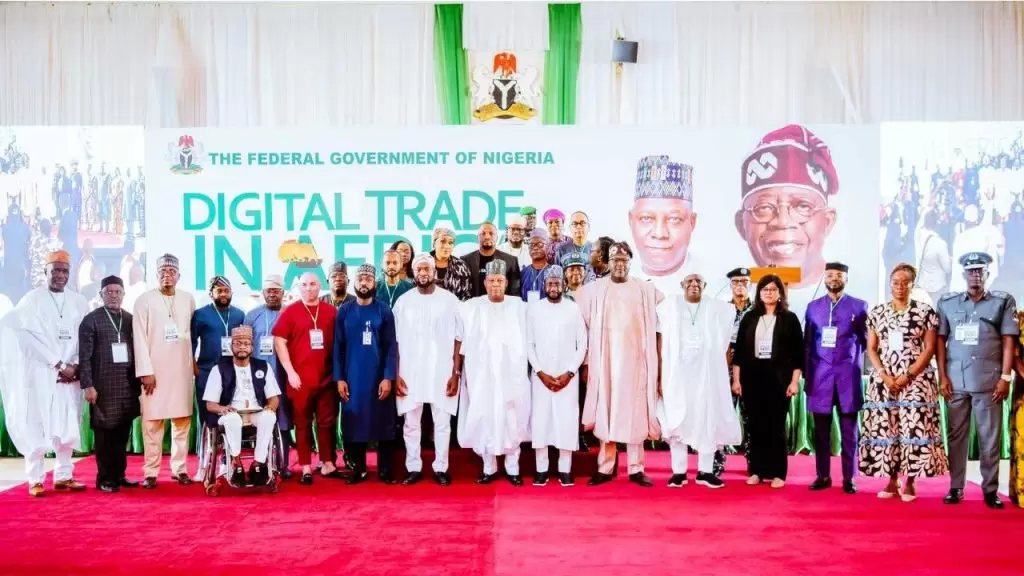The Federal Government of Nigeria has used the African Continental Free Trade Agreement (AfCFTA) framework to lead Africa’s Digital Trade revolution. This was revealed on Friday, July 19, 2024, by the Office of Vice-President Kashim Shettima during his keynote speech at the Stakeholders Summit, which took place at the Presidential Villa in Abuja.
The Vice President shed light on critical elements of the roadmap, emphasising the significance of implementing the African Continental Free Trade Area’s (AfCFTA) Digital Trade Protocol.
This protocol aims to harness the power of digital technologies to facilitate trade, enhance efficiency, and promote economic growth across the continent. By streamlining digital trade processes, African countries can unlock new business opportunities, foster innovation, and increase global competitiveness.
The Vice President also highlighted the importance of establishing extensive technical talent hubs, which is critical in driving the continent’s digital transformation.
These hubs will serve as centres of excellence, nurturing skilled professionals and providing the necessary expertise to support the implementation of the AfCFTA’s Digital Trade Protocol.
By leveraging trade as a driver for economic growth and continental unity, the roadmap aligns with the overarching objectives of AfCFTA, paving the way for a more integrated, prosperous, and unified Africa.
Nigeria Set to Lead Africa’s Digital Trade Technological Transformation
Vice-President Shettima noted that Nigeria is positioned to lead the continent’s technological transformation.
He explained that they are in a vantage position because they are the continent’s largest ICT hub, and as such, they must lead the way to the future of this peculiar wave of the industrial revolution.
Shettima also stressed the need for the country’s policy initiatives to meet up with those of developed economies, even as they’re enhanced to accelerate Nigeria’s growth and sustain it as the continent’s leading tech hub.
To achieve this, he continued that the plan will also focus on enhancing digital infrastructure investments and promoting disruptive innovation and entrepreneurship.
Furthermore, he emphasised the need for strategic collaborations between the public and commercial sectors to execute the AfCFTA’s Digital Trade Protocol successfully.
Meanwhile, the government assured us its commitment to investment in digital infrastructure and human capital development to drive innovation.
Admitting that the digital sector is the foundation upon which all other industries rely to survive, Shettima noted that the country can’t afford to slow down digital technologies.
Read also: Nigeria Computer Society to hold conference on tech solutions
Strategic Initiative and Investment to Boost Nigeria’s Digital Economy
Their programmes, from the Investment in Digital and Creative Enterprises (iDICE) to the ongoing intervention to train three million technical talents (3MTT) by the Ministry of Communications, Innovation and Digital Economy to the Outsource to Nigeria Initiative (OTNI), are lifeliness in their digital economy.
The Tinubu-led administration has been investing heavily in every facet of the digital trade protocol to generate opportunities in the nation and throughout Africa, according to Dr Bosun Tijjani, the Minister of Communications, Innovation, and Digital Economy.
In a drive to increase intra-African trade and economic diversification, President Bola Tinubu launched the Guided Trade Initiative last week under the AfCFTA, which was a significant step forward for the nation. It is anticipated that the project will open up an estimated $50 billion in new commercial potential for companies in Nigeria.




